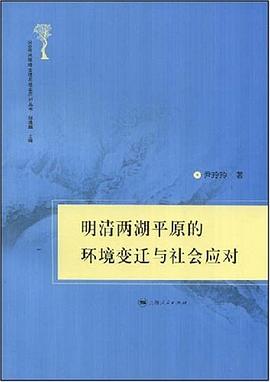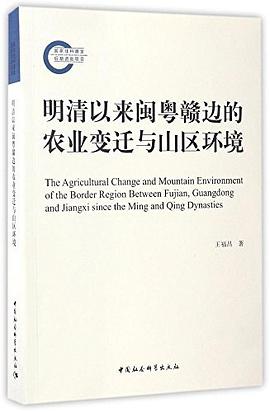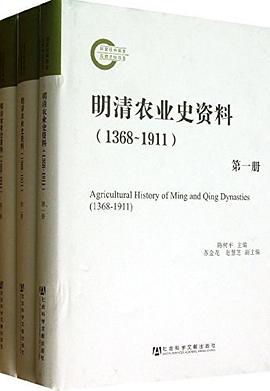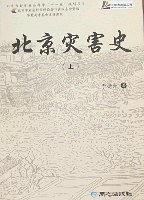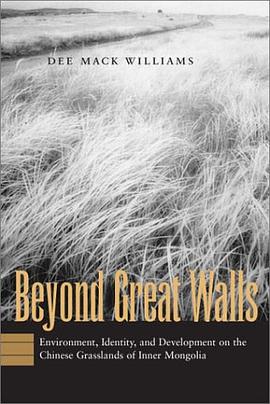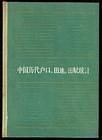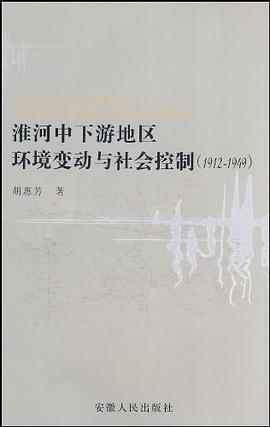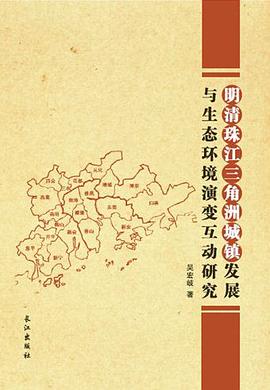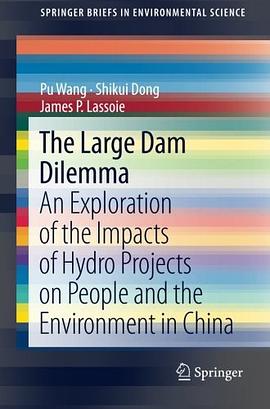

具体描述
Large dam construction has significant environmental and social impacts at different scales. As the largest developing country in the world, China has built about half of the world’s large dams, and more are expected to be built over the next two decades to meet the country’s rapidly growing demand for energy. This book summarizes and updates information about the history, distribution, functions, and impacts of large dams, both globally and at China’s national level. It then addresses the environmental and social-economic impacts of large dams in China with particular emphasis on the impacts of large dams on relocated people and associated compensation policies. Lastly, it introduces an integrated ecological and socio-economic study conducted in areas affected by dams along the Upper Mekong River, China. This book has the following three goals.
The first goal is to summarize and update information on large dams globally and at China’s national level (Ch. 2). We examine large dam problems from different perspectives, ranging from their spatial and temporal distributions and their environmental and social impacts, to discussions and debates centered on them. We also incorporate the results of an empirical investigation of the environmental and socio-economic impacts of large dams on the Upper Mekong River, China, and draw conclusions out of the analysis (Chs.3 & 4).
Our second goal is to provide an analysis framework to help understand the environmental and social-economic impacts of dam construction and the resulting environmental degradations and social inequities at different scales (Chs.3 & 4), as well as to offer recommendations for mitigating these impacts within China’s socio-political context (Ch. 5). The significant environmental effects resulting from dam construction include damage to ecological integrity and loss of biological diversity. The most significant social consequences brought by dam projects are their negative impacts on relocated people. Our analysis framework provides approaches to help comprehensively understand these impacts.
Our third goal is to provide clues and suggestions for further studies of large dam problems both globally and in China (Ch. 5). The construction of large dams is proceeding rapidly in different parts of the world despite the heated debates on whether they should be built at all. The decision-making process related to building large dams involves considerations of economic viability, environmental sustainability, and social equity. Therefore, interdisciplinary collaborations are required in large dam research and development projects in order to reconcile the interests of different stakeholders and avoid harming ecosystems, biodiversity, and human welfare. Overall, we hope our book facilitates future examinations of large dams by providing summaries of existing data and research related to large dams, and offering a framework for better understanding and analyzing their environmental and social impacts.
作者简介
Pu Wang is a doctoral student in the department of natural resources at Cornell University. He just completed a three-year project on large dams in Yunnan, China with Dr. Dong and Dr. Lassoie.
Dong Shikui is currently an India China Institute (ICI) Fellow at the New School in New York. He is a Professor at the School of Environment, Beijing Normal University. He was recently appointed an adjunct professor at Cornell University’s Natural Resource Department (2007-2012). He also serves as an “Invited Scientist” for the Environment Impact Assessment Center of China’s Ministry of Environmental Protection. Through the ICI Fellowship, he is interested in exploring ecological and social variables related to decision making in environmental management and best practices for sustainable, integrated ecosystems and environmental management.
Dr. James Lassoie is particularly interested in examining coupled human and natural systems involving the management of parks, protected areas, and otherwise fragile landscapes in developing countries as well as the United States. Lassoie pursues these interests often by working with graduate students, many from the countries under investigation. His primary focus for the next five years will be to examine coupled systems in the Hindu Kush-Himalayas, while further developing an Internet-based platform connecting conservation practitioners to academic research and teaching institutions (www.ConservationBridge.org).
目录信息
读后感
评分
评分
评分
评分
用户评价
这是一本需要做笔记才能读完的书,不是因为它晦涩难懂,而是因为它信息量实在太过庞大,每一个段落都似乎蕴含着多重解读的可能性。作者的叙事线索设置得极其精妙,采用了多重视角切换,让你不断地在“局内人”的视角和“旁观者”的审视之间跳跃。这种手法极大地丰富了故事的层次感,使得原本可能单薄的主题瞬间变得立体和深刻。最让我印象深刻的是书中对“记忆”和“遗忘”这两个概念的探讨。某些关键事件的描述,会因为不同人物的立场而产生微妙的偏差,这种“不可靠的叙述者”策略,迫使读者不能轻易相信任何单一的陈述,必须主动去构建属于自己的真相。我感觉作者是在挑战我们对“客观事实”的迷信。此外,本书在美学层面上也有极高的追求,虽然内容严肃,但文字本身的音乐性和画面感却出奇地强,仿佛在阅读一部文学性的黑白电影剧本,每一个场景都可以在脑海中清晰地浮现,那种冷峻的美感,是许多同类型作品难以企及的。
评分说实话,这本书的节奏感掌控得非常到位,张弛有度,让人欲罢不能。它采取了一种近乎纪录片的冷静视角来叙述一个宏大叙事下的个人悲剧,这种疏离感反而加深了故事的真实性。我注意到作者在语言运用上颇有匠心,他似乎偏爱使用那种短促、精准的句子,像冰冷的刀锋一样切入主题,毫不拖泥带水。这使得阅读体验变得非常高效且引人入胜,你不会在冗长的形容词堆砌中迷失方向。其中关于权力结构运作机制的剖析,简直是教科书级别的展示,它揭示了在巨大系统面前,个体是如何被无情地工具化,又如何在体制的惯性中被塑形或碾碎。我特别佩服作者构建世界观的能力,即便故事背景设定在一个虚构的、或者说被高度提炼的场景,但其内部的逻辑自洽性极其强大,让人深信不疑。这本书的价值不仅在于它讲述了一个精彩的故事,更在于它提供了一个审视我们自身所处环境的独特透镜,让人在合上书后,仍能带着批判性的眼光看待周遭的一切复杂事务。
评分这部作品的伟大之处,在于它成功地将一个宏大的社会议题,通过极其个人化的视角进行了有效的锚定。作者没有试图去描绘一个包罗万象的史诗,而是专注于几个核心人物,通过他们错综复杂的情感纠葛和职业困境,折射出整个时代的困境。我尤其被书中对“专业精神”和“职业伦理”的探讨所吸引。它尖锐地指出了,当个人专业能力达到顶尖水平时,如何平衡其带来的巨大社会责任与随之而来的政治压力,这是一个非常当代且具有紧迫性的议题。作者的笔触在技术细节的精确性与哲学思辨的广阔性之间找到了一个绝佳的平衡点。它读起来就像一部精心打磨的悬疑小说,但其内核却是对社会结构和治理模式的深度拷问。读完之后,我强烈建议读者去查阅一下作者在附录中提及的那些背景资料,你会发现,书中的很多看似夸张的情节,其实都根植于真实的社会观察,这使得作品的力量倍增,具有了非凡的现实意义和警示价值。
评分这部作品给我带来了意想不到的震撼,它并非那种你翻开就能立刻领会其深意的书。初读时,我感到一丝困惑,作者的叙事手法如同迷宫般复杂,线索交织,人物关系错综复杂,需要极大的耐心去梳理。然而,正是这种挑战性,让我沉浸其中,仿佛自己也成了解谜的一份子。我特别欣赏作者对时代背景的细致描摹,那种扑面而来的历史厚重感,让人清晰地感受到角色们所处的困境与挣扎。它探讨的主题非常深刻,关乎人性在极端压力下的选择,关于集体利益与个体良知之间的永恒拉锯。书中的几次高潮处理得极为巧妙,不是通过激烈的冲突,而是通过人物内心深处隐忍的情感爆发来体现,那种无声的呐喊,比任何声嘶力竭的争吵都更具穿透力。读完合上书的那一刻,我久久不能平静,脑海中不断重放着那些关键的对话和场景,思考着作者抛出的那些尖锐的问题,关于我们所信奉的“正确”是否真的经得起推敲。这本书无疑需要细细品味,它是一场智力与情感的双重考验,绝对值得反复阅读。
评分我必须承认,这本书的阅读过程充满了挑战,它远比我预期的要沉重得多。它没有给予读者任何轻松的出口,所有角色似乎都在某种无法摆脱的宿命感中挣扎。作者对人性的阴暗面展现得淋漓尽致,但又非常克制,没有落入俗套的道德审判,而是用一种近乎冰冷的、科学的笔触去解剖人性的弱点。这种冷静的剖析反而更令人心寒,因为它让你直面那些你希望世界没有的部分。我特别欣赏作者在处理冲突时的细腻手法,冲突往往不是在外部爆发,而是在人物的内心深处进行着无声的较量,那种理性与情感、责任与欲望之间的撕扯,被刻画得入木三分。这本书的结构安排也十分巧妙,采用了非线性的叙事,关键信息的碎片化呈现,让你在阅读过程中不断地拼凑,直到最后一刻才豁然开朗,这种“延迟满足”的叙事技巧处理得非常成熟,让最终的揭示具有了强大的冲击力。它不是一本适合在睡前阅读的书,因为它会占据你所有的思绪。
评分喝儿,cite了一箩筐新华社消息,其中p29一条把水利专家John Savage拼成了Sovage,纳了闷了,去谷歌,搜出来一堆人民网新华网,抄来抄去的么是拼错的Sovage。这几位作者大爷您们写书靠人民网也就算了抄完好歹校对一下人名吧=。=
评分额、大部分都是新闻的拼凑、我真是想多了
评分额、大部分都是新闻的拼凑、我真是想多了
评分额、大部分都是新闻的拼凑、我真是想多了
评分额、大部分都是新闻的拼凑、我真是想多了
相关图书
本站所有内容均为互联网搜索引擎提供的公开搜索信息,本站不存储任何数据与内容,任何内容与数据均与本站无关,如有需要请联系相关搜索引擎包括但不限于百度,google,bing,sogou 等
© 2026 book.quotespace.org All Rights Reserved. 小美书屋 版权所有

